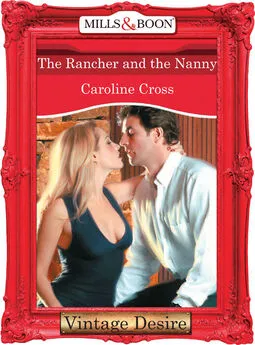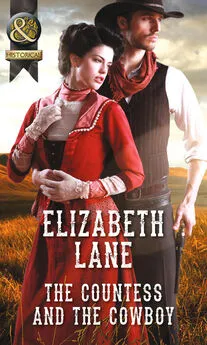John Creasey - The Toff and The Sleepy Cowboy
- Название:The Toff and The Sleepy Cowboy
- Автор:
- Жанр:
- Издательство:неизвестно
- Год:неизвестен
- ISBN:нет данных
- Рейтинг:
- Избранное:Добавить в избранное
-
Отзывы:
-
Ваша оценка:
John Creasey - The Toff and The Sleepy Cowboy краткое содержание
The Toff and The Sleepy Cowboy - читать онлайн бесплатно полную версию (весь текст целиком)
Интервал:
Закладка:
Jolly was dressed in striped trousers and a white shirt and wore a green baize apron.
“Shall I put the eggs on, sir?”
“Jolly,” said Rollison, “do we know a man named Loman?”
After a moment’s reflection, Jolly answered: “No, sir. Should we?”
“I suspect that we are going to find out. Yes, put on the eggs, and I’ll tell you about the call while I have breakfast. Have you had yours?”
“Oh, yes, sir.”
“Then have some coffee while I eat,” said Rollison.
Between now and breakfast being served there would be no time to dress, so he went to a wall which was at angles with the trophy one and took down a World Gazetteer, then thumbed the pages until he found Tucson, pronounced, it was said, Teu-sonn. It was a city of some three hundred and fifty thousand people, with mountains to the north and south, the east and west. There the sun shone on most days of the year and it could become much too hot but seldom too cold. Near it were many mines, mostly producing copper, and the final word was : ‘Tucson is one of the five quickest growing cities in the United States judged on population.’
“Humm,” Rollison said to himself.
Immediately, Jolly appeared with a tray which he placed on a table in a small, raised dining-alcove at one end of this large room. Rollison set to, Jolly drank coffee, Rollison told the story briefly, and Jolly remarked :
“I remember Mr. Selly, sir.”
“You do?” Rollison was intrigued.
“He came one day when you were out,” Jolly informed him, “and asked me what a Toff was.”
“Oh,” said Rollison, still further intrigued. “What did you tell him?”
“That a toff is a toff, sir.”
“I am sure that conveyed everything he needed to know,” Rollison said drily.
“Of course I elaborated somewhat,” went on Jolly urbanely, “but basically it is a difficult term to define, especially to this generation.” When Rollison speared a piece of bacon, obviously expecting him to go on, Jolly continued: “I told him that a toff was a gentleman of high social standing who exerted himself to do great good among the less fortunate members of society.”
“Oh,” Rollison said. “Can’t we do better than that?”
“Can you, sir?” inquired Jolly.
“I shall think about it,” Rollison decided, and after a liberal helping of bacon and eggs, spread butter and a dark-coloured marmalade on toast, finished breakfast and went to his room to dress. It was not one of his good mornings, for his attempt to define a ‘toff’ proved both disconcerting and abortive. He found that Jolly had made his bed and laid out a medium weight suit of heather colour, perhaps as satisfactory as any for this autumn day. “A toff,” he said in a complaining voice, “is a man who gets waited on hand and foot and is rich enough to give hand-outs.” He knew that was not fair to himself, laughed aloud, dressed, and was going into the big room when the telephone bell rang again.
“I’ll get it!” he called, and this time sat down with his back to the Trophy Wall, plucked up the receiver, and said: “Richard Rollison.”
“Good morning, Rolly,” said a man with a familiar voice. “And what have you been up to?”
“Bill” Rollison almost groaned.
“That’s right. Come on, now. You might as well confess.”
“Bill,” interrupted Rollison in a tone of mock des-peration. “You are the very man I need. Who better than Chief Detective Superintendent William Grice of New Scotland Yard to tell me what I am? Bill — can you define ‘a Toff?”
There was silence.
He had at least gained time to think, but thinking did not take him far. Grice was both old adversary and old friend, and had been concerned in most of the cases remembered on the Trophy Wall. Frequently, when he, Rollison, became involved in an inquiry it was before the police discovered that there was anything to inquire about. At such times Grice was likely to call and ask: “What have you been up to?” Rollison could not think of a single recent activity which could justify the question.
At last, Grice said: “A toff is a toff, of course.”
“You’re a great help,” said Rollison heavily. “Nothing.”
“What?”
“I have been up to nothing which might interest you.”
“That is the one thing about you I would never believe,” retorted Grice. “You can’t expect me to believe it, either.”
“Bill,” Rollison said, pleadingly, “be more specific, will you? It has been one of those mornings. I can’t get any sense out of anybody and least of all from myself. What makes you think I have been ‘up to something’?”
Again there was a pause, doubtless while Grice decided whether he was stalling or whether he was genuinely baffled. Rollison made himself more comfortable in his chair. Suddenly, Grice said: “Just a minute, Rolly,” and Rollison held on, hearing voices in the background; someone had come in Grice’s office. This time Rollison felt the stirring of impatience; he seemed to have done nothing but hold on at the telephone all the morning. The delay was very short, and Grice came back in a stronger voice: “What do you know of a man named Thomas G. or C. Loman?”
Rollison sat bolt upright in his chair.
“And don’t say ‘nothing’,” Grice almost barked.
“Bill,” said Rollison, faintly, “I know next to nothing. An American newspaperman named Selly called from New York this morning and asked me if I were expecting a visit from a man named Loman. I answered truly : I was not. He then wanted to know if I knew any Loman.
I answered as truly : I did not. He added that Loman hails from the city of Tucson, in —”
“I know where he hails from,” interrupted Grice. “Is this gospel, Rolly ? You really don’t know him?”
“Until this morning I had never heard of him. I couldn’t have placed Tucson with any accuracy on a map, either.”
“Never mind Tucson.” There was another pause and a murmur of voices, as if Grice were in consultation in his office. Then Grice came back and demanded in one breath: “If you don’t know him, how is it he has your name and address as his final destination in London on his travel documents.”
“He has?” exclaimed Rollison.
“I have his ticket in front of me, and on it your address is quoted as his English destination.”
“You know,” Rollison said. “I wish he would come. I would like to ask him a thing or two.”
“Well,” Grice said, “he can’t.”
The phrase struck an ominous note and moved Rollinson’s emotions from bewilderment with an under-tone of frustration to apprehension. He did not ask why Thomas G. Loman could not come to see him, but knew of at least one very good reason: that he was dead.
Grice went on slowly, as if grudgingly : “Not yet, at all events.”
The devil, thought Rollison, he’s having me on. Aloud, he asked: “Is he hurt?”
“He’s unconscious.”
“What put him out?” demanded Rollison, sharply.
“A shot of morphia,” Grice stated, without any hesitation at all. “When the aircraft arrived at Heath Row this morning he was found unconscious in his seat. At first the stewardesses thought he was asleep, but it is much more than that. He’s in the airport hospital now, and I’ve just had the report saying that he’s under morphine and that there are hypodermic needle punctures in his right and left forearms.” There was a long pause which could only be called pregnant, before Grice demanded in a voice laden with doubt: “Are you sure you don’t know him? Are you sure you’re not up to something you’ve forgotten to tell us about?”
Very slowly, Rollison answered: “I am quite sure, William.”
“Then why the devil should he have been coming to see you?” demanded Grice. “He’s got no luggage and no money in his wallet. His American passport is valid. Either he left New York quite empty handed or else he’s been robbed.”
4
Face to Face
“BILL,” ROLLISON SAID with quiet persistence, after a long, pregnant-type pause, “I can’t answer any of the questions about this man because I don’t know a thing about him. Unless —”
“ Ah!” broke in Grice, semi-triumphant.
“Unless he’s using a false name, which would presum-ably mean using a false passport,” Rollison finished.
“I have known friends of yours do such things,” Grice observed, cuttingly.
“Bill,” said Rollison in his gentlest voice. “You aren’t exactly in the friendliest of moods this morning, are you?”
There was a short pause, followed by a staccato exclamation, before Grice said in tacit agreement:
“I must have got out of bed the wrong side. Can you go to the airport?”
“To identify the man, if by chance I do know him under some other name?”
“Yes.”
Rollison pondered. He had a committee meeting for a fund-raising group for Cancer Research but they could get on without him, and he had a luncheon appointment with, his accountant, who could easily be put off; and in any case a ‘no’ would probably make Grice’s mood even more difficult. So he said in the most conciliatory tone:
“Yes, Bill, I can leave here in twenty minutes or so. Will you be there?”
“I wish I could be but I’ve a Commissioner’s meeting,” Grice answered. The overhanging threat of that could partly explain his mood. “You know Paterson of the Airport Police, don’t you?”
“Slightly.”
“I’ll tell him to expect you,” Grice promised. “And thanks.”
“I really can’t wait to meet Thomas G. or C. Loman,” Rollison told him.
“I’ve just made sure it’s G., as in George,” asserted Grice.
“Thanks. I’ll let you know how I get on,” Rollison promised, and rang off.
For a few moments he sat back, frowning at the ceiling, and did not look round when Jolly came in. Jolly would have heard the conversation on the kitchen extension: it was accepted that he should listen to all but personal calls, thus saving the need for explanation on matters he would need to know about in any case. “What do you make of it?” Rollison asked.
“Peculiar is one word, sir.” Jolly came further into the room.
“Suspicious?” asked Rollison.
“In the sense that this could be an attempt to involve you in some affair without you knowing?” asked Jolly. “Yes.”
“Conceivably so,” Jolly admitted. “Yes indeed, sir, that is possible.”
Rollison pushed back his chair, stood up, and jingled coins and some keys in his pocket. He studied Jolly in a preoccupied way, and the flat was silent as the two men were still. The shadow of the Trophy Wall seemed to loom about them until Rollison threw the shadow off and said lightly:
“Telephone apologies for my two appointments, will you?”
“I will indeed, sir.”
“If I’m not going to be in for lunch, I’ll telephone you.” Jolly would be athirst for news, and it would be stark cruelty simply to stay away if the affair of Thomas G. Loman promised any interesting developments. “I’ll get going,” he added. “I’ll take the Bristol.”
“Very good, sir,” Jolly said.
Rollison went to his room, checked his change, keys and wallet, then went back to the big room. He could not say what moved him to go to the window, a point of vantage in times of excitement. By standing to one side he could see most of the street — in fact all of it in each direction except the few square yards immediately in front of this house. Times out of number he had come here and noticed someone watching his flat.
Читать дальшеИнтервал:
Закладка:










